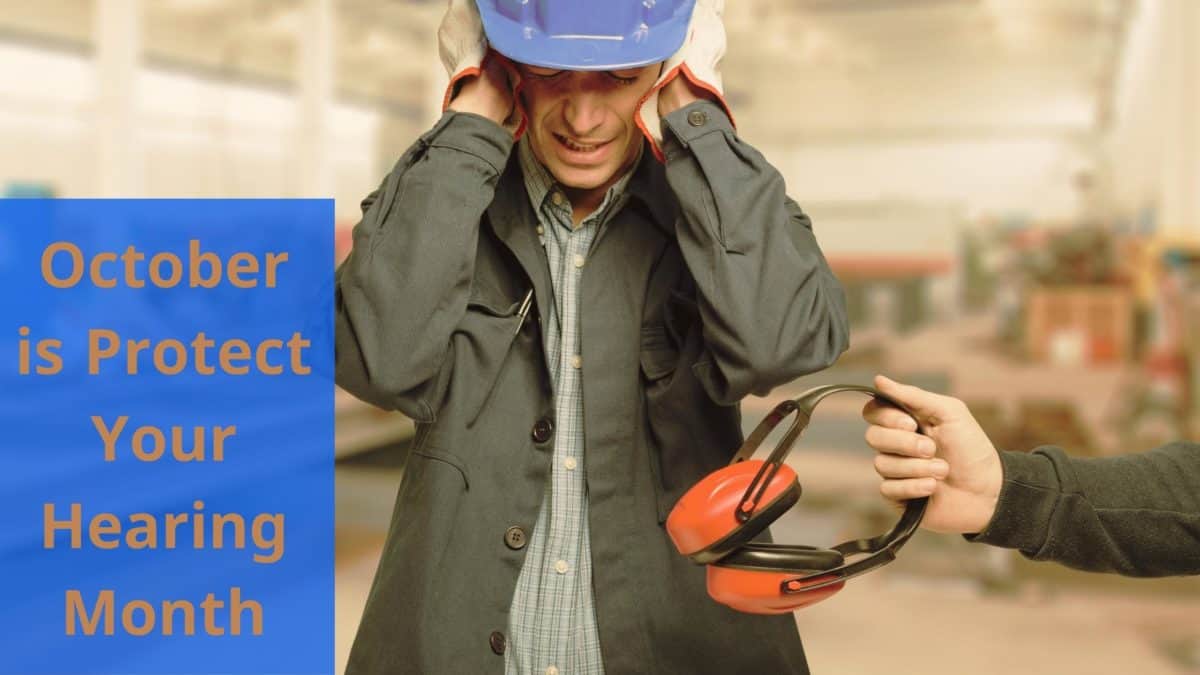- Alcohol and Hearing Health - April 9, 2025
- How Smoking Can Harm Your Ears - March 11, 2025
- Succeeding in the Workplace with Hearing Aids - February 10, 2025
October is National Protect Your Hearing Month this month. Hearing health and exposure to noise are October by the National Institute on Deafness and Other Communication Disorders to increase awareness about the causes and prevention of noise-induced hearing loss (NIHL).
Decibels and Our Hearing
A decibel (dB) is a unit of measurement that measures how loud a sound is; as the noise level rises, so does the decibel level. Individuals’ hearing ability is directly affected by the intensity of noise and the length of time they are exposed to it.
The human hearing threshold ranges from 0 to 140 decibels. We are constantly exposed to scenarios with varying decibel levels throughout our daily lives. While the softest sound is 0 decibels, 120 decibels can be as loud as a crack of thunder. Exposure to 85 dB is advised only for a maximum of ] 8 hours, while 110 dB is only recommended for 1 minute and 29 seconds. With a 3 dB increase, the noise doubles, and the recommended exposure period is cut in half. When exposed to noise levels over 85 decibels for an extended period, irreversible hearing loss can occur.
Young People and Hearing Loss
Although many people are at risk of hearing loss from noise, younger generations are increasingly at risk due to new technologies and changes in how young people spend time.
According to the latest research from the Centers for Disease Control and Prevention, roughly 40 million persons aged 20 to 69 have hearing loss due to excessive noise exposure. Surprisingly, approximately 17% of youngsters aged 12 to 19 had signs of noise-related hearing loss in one or both ears.
This isn’t simply an American issue, either. Indeed, the World Health Organization has cautioned that 1.1 billion teenagers and young people worldwide are in danger of noise-induced hearing loss due to their recreational activities.
What young people can do to protect their hearing
While these figures are startling, the good news is that noise-induced hearing loss is entirely avoidable. A few simple lifestyle adjustments can have a significant impact on your hearing.
Protect your ears with hearing protection: Hearing protection is still considered “uncool” in social circumstances, even though it is critical in safeguarding your hearing. Custom earplugs are a good choice because they are tailored to suit your ear correctly and are thus comfortable and inconspicuous.
Avoid noise: You should restrict your exposure to noisy surroundings even if you are using hearing protection. You’re undoubtedly aware that particularly loud environments, such as music venues or sports arenas, can harm your hearing. Still, it’s also important to remember that many other commonplace activities, such as visiting bars or restaurants, can also cause hearing loss. Noise-induced hearing loss is most typically gradual, resulting from months or years of cumulative noise exposure. Committing to swap out one noisy social occasion each week for a calmer activity like hiking is an excellent strategy to reduce your noise exposure.
The 60/60 rule: The 60/60 rule applies to personal listening devices, which significantly contribute to the rise in noise-induced hearing loss among young people. The 60/60 rule might assist you in making sure your earbuds aren’t causing you to lose your hearing. The 60/60 guideline is straightforward: listen to your earbuds at no more than 60% of maximum volume for no more than 60 minutes.
Be healthy: Excessive drinking, smoking, and a lack of physical activity are associated with an increased risk of hearing loss. It’s critical to keep track of how much you drink and to exercise for at least 30 minutes each day. Regular exercise and a balanced diet improve blood flow to the tiny vessels in your ears, keeping them healthy and functioning correctly.
What do all ages have in common when it comes to hearing loss? It takes roughly seven years for the average person to seek help on their hearing loss. It is critical to pay attention to your hearing regardless of your generation. Whether you’re eighteen or eighty, if you’ve experienced indicators of hearing loss or a ringing or buzzing in your ears, contact us today! This National Protect Your Hearing Month, we look forward to working with you and assisting you in regaining your hearing – and quality of life – regardless of your age.


